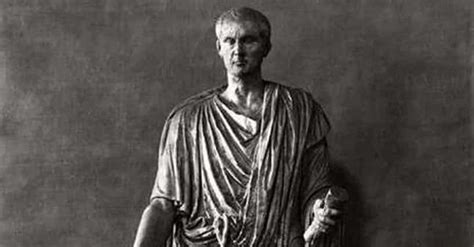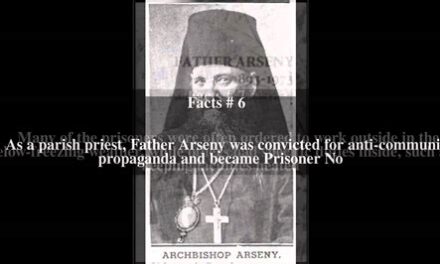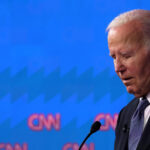Latin students may recall that it was Cato the Elder who proclaimed, “Carthago delenda est” or perhaps “Carthaginem esse delendam” (“Carthage must be destroyed”). Setting aside considerations of the rights and wrongs of the Punic Wars, the noble Roman was making a point that now and again in history needs making, namely, that there is no substitute for total victory.
However, when I think of the rare necessity for total victory, which, after all, quite often translates into total war, I don’t think of Cato so much as I do the character of Theo Kretschmar-Schuldorff from Michael Powell and Emeric Pressburger’s 1943 masterpiece, “The Life and Death of Colonel Blimp.” In an age of cinematic fluff, of sequels, prequels, and duds (largely synonymous terms), the movie is largely unknown; but to real film lovers, I take it, the title is not unfamiliar.
It shouldn’t be. Colonel Blimp (the name is a popular designation of a stiff-upper-lipped, tried-and-true, lovable, curmudgeonly British officer of the old school) plots forty years in the life of Clive “Sugar” Candy, from the Boer War to the middle of World War II. To make a long story short, Theo, a young German officer is chosen to fight a duel with the young Clive to preserve the honor of not only his regiment but also the entire German army. The odd outcome is that they become friends.
What makes Theo interesting to us in what may be the Age of ISIS is his role in the last quarter of the story. As Clive and he age, the world moves from war to war, with Theo’s feeling the necessity to leave his native Germany where his wife, an Englishwoman (played by Deborah Kerr), has died and his sons have become Nazis and estranged from him. The old friendship between the two men from more civilized days is revived as the war heats up, and Clive, awaiting the call to fight yet another campaign, prepares an address for the BBC about what he knows best and feels most ardently: the ancient British insistence on fair play, even in war, that “right is might, after all.” The idea of the “gentlemen’s war” is chapter and verse to him.
When Clive arrives at the bunkered BBC studio, the speech is abruptly canceled, and he returns home downcast and bewildered. But Theo is not surprised. He knows a new age has dawned, an age of enemies to whom civility, mercy, love, and mutual respect mean nothing. As Clive attempts to defend the creed that, as he perceives it, has served his country and himself all his career, Theo responds by painting a picture of the new enemy England faces:
Clive, if you let yourself be defeated by them just because you are too fair to hit back the same way they hit at you, there won’t be any methods but Nazi methods. If you preach the rules of the game while they use every foul and filthy trick against you, they’ll laugh at you. They think you’re weak, decadent . . . Because victory was yours, you failed to learn your lesson twenty years ago, and now you have to pay the school fees again. Some of you will learn quicker than others; some of you will never learn it, because you’ve been educated to be a gentleman and a sportsman in peace and in war. But, Clive, dear old Clive, this is not a gentleman’s war. This time you are fighting for your very existence against the most devilish idea ever created by a human brain: Nazism. And if you lose, there won’t be a return match next year, perhaps not even for a hundred years.
And Clive, though perhaps not a complete convert to Theo’s way of thinking, is appropriately sobered.
Barack Obama, John Kerry, Hillary Clinton, and a host of European politicians went to some of the best schools. But they weren’t educated in the creed of God, king, and country. Not by a long shot. They sat at the feet of Marxist historians and critical theorists, imbibing the teaching that the West was not a bastion of goodness and truth, but that it was, to borrow Theo’s word, decadent—not because it had failed to learn some hard truths about its enemies but because of its very premises: the faith, freedom, and institutions that have defined it for centuries. And they’ve carried that conviction into the political world of our country and abroad.
When ISIS and the Islamic powerhouse of Iran attack and insult us, what do our politicians do? They grovel at their feet and celebrate the new understanding they and their enemies have gained of one another. When Iran takes our sailors hostage, we abase ourselves before them, send them four hundred million dollars, and declare it a diplomatic victory.
When Obama calls ISIS a jayvee team, they respond with the heads of Christians and less militant Muslims, and with terrorism on our own shores. As the administration declares progress and containment, they celebrate a four-year-old boy (as Gatestone Institute has reported) who throws a bomb into a car of prisoners. In Theo’s words, they laugh at us.
The Middle East surely knows the reality of conflict, of rival factions and nations that, notwithstanding their common ethnicity and religion, slit one another’s throats with almost boring regularity. But one thing that unites many of them is their hatred of the United States and the West—a hatred as thorough as that of the Marxist professors that live in safety here—but in the name of Islam.
We have the power, but do we have the will to stop playing games and fight back? Total victory is not simply one alternative out of many. We face an implacable, wicked, totalitarian foe whose creed, as horrific as Nazism, proclaims that acceptance of Islam is the only path a man or a nation can take. Call it their final solution.
Either they will win and deprive us of all that is dear to us for what might stretch to Theo’s one hundred years, or we must muster the courage to destroy them totally. This is not a gentleman’s war.














